Stuart Aken's Blog, page 334
January 8, 2011
A Sackful of Shorts Now on Kindle
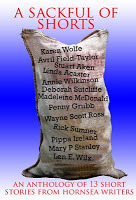
The anthology of short stories, written by my writing group, Hornsea Writers, and edited by me, is now available direct on Kindle in UK and on Kindle in USA . It contains a lucky 13 stories of various different genres, illustrating the diverse talents of the group members, all of whom are published authors. If you don't have a Kindle, you can read it on your PC or Mac by downloading the free software from Amazon here for PC and here for Mac, here for iPad, here for iPhone and here for Android.Of course, if you have a different eReader, or you want to read it on your PC or Mac using a different platform, they are all catered for on the Smashwords site here.

Published on January 08, 2011 12:25
January 6, 2011
How Should A Story End (Happy or Realistically)?
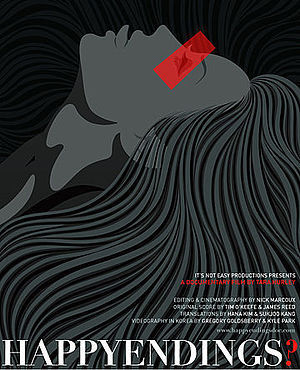 Image via Wikipedia
Image via WikipediaAre you a reader who likes happy endings? Or do you prefer tear-jerkers? Perhaps you want a story to close in a satisfactory manner that suits the topic, regardless of whether that makes the ending sad, happy or shocking. Certainly, the latter is my own approach when I'm writing. But, as a reader, I admit to a preference for an ending that leaves me feeling 'up' rather than 'down', which may explain why I tend to read fewer books in certain genres.Romance, of course, usually ends with a feelgood episode, leaving the reader feeling happy, satisfied, content and warm. And critics have a tendency to be more robust in their comments if the story has a happy ending. It's as if the general feeling is that such a pleasant finish to a story takes it out of the realm of real life and places it into the fantasy arena. That may sometimes be true, but is it a fault? If readers want to finish a book on a high note, isn't it the writer's job to ensure such an ending is possible and plausible? After all, the reader's the prime arbiter of taste in such things. Those writers who suggest that the reader is secondary must surely be writing for themselves, and therefore should perhaps not be seeking publication. And those writers who feel they know better than the reader what is best for them, might be accused of patronising the very people who support their creative efforts.Of course, this is all to oversimplify what actually goes on with both reader and writer. But, as my intention is to stimulate discussion here, I think a few contentious statements are valid, don't you?So, let me have your responses to my ideas. Tell me what you think as a reader, as a writer, about the ending of a story.

Published on January 06, 2011 16:00
January 4, 2011
Interview With Author, Tommy Taylor
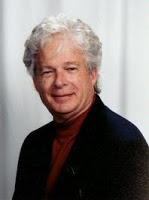 As the author of the book "The Second Virgin Birth," I thought you might be interested in why I wrote the book in the first place. I truly believe that each one of us has inside our very souls, something that we need to accomplish before we pass from this world to the next. Mine was to write a book. One that was not just entertaining but inspired thought among its readers. One that could cause heated debates among friends about its not so simple and clear-cut meanings. I feel that I have accomplished my goal with a book written on a subject that could touch us all and with characters that are so lifelike that they could become your true friends or your worst enemies.
As the author of the book "The Second Virgin Birth," I thought you might be interested in why I wrote the book in the first place. I truly believe that each one of us has inside our very souls, something that we need to accomplish before we pass from this world to the next. Mine was to write a book. One that was not just entertaining but inspired thought among its readers. One that could cause heated debates among friends about its not so simple and clear-cut meanings. I feel that I have accomplished my goal with a book written on a subject that could touch us all and with characters that are so lifelike that they could become your true friends or your worst enemies.My idea for this book began after a p...more
Tell us about The Second Virgin Birth in a few sentences.
The book is ten years in the life of, Mary, a little girl from Alabama from the age of six until she is sixteen. But she is unlike most "Mary's" that you would expect to find in a book that brings our lord and savior back a second time. She goes completely insane at the age of ten, spends half her life in an insane asylum, and becomes involved in child pornography. This Mary is a character who truly develops and makes right and wrong decisions in front of your eyes as the story unfolds.
How did you come to write this particular book?
Very long story; I lost my daughter at age 19. I went totally insane. I thought that there had to be a way to bring her back. A way to hold her in my arms one more time. I just knew there had to be a secret government project that would clone her. I even saved the hair off her hairbrush. Then a year later I came to my senses and thought if I wanted to bring back a loved one, that perhaps others did also. But just as I was about to begin writing I decided if I was going to bring back a love one in a story, why not bring back the most loved person of all time. Jesus Christ.
If you have a favorite character in your novel, why that particular one?
Pedro, because he is nothing more than a common man, yet it is his common sense makes all of this possible.
Where and when is your novel set and why did you make these specific choices?
It's time frame is today and it takes you all over the world before it is done.
How can people buy your book?
Amazon is the best and fastest way to get a copy. But if USA readers go to the used book link, and click on the used books that I am selling and tell me that they found out about my book from this website, I will send them a brand new signed copy for the price of a used one. Plus they will save about $7 off the cover price. (Sorry, this can't be done on the UK Amazon site).
What qualities make a successful writer?
Three things; having a story to tell. Actually sitting down and writing it. Then most importantly, have someone who wants to read your story.
How do you set about writing a piece?
Nothing magical; just lots of research on places, people, and things that will be used in the story. I always believe that by interjecting real objects into a story, one adds a thread of believability.
Beginning writers make many mistakes; what do you think is the most harmful?
Thinking that their story is finished with only one or two edits. When one edits a story, that is when some real meat can be added.
To what extent are grammar and spelling important to a writer?
Unfortunately, they are extremely important. How tragic it would be if a misplaced coma or misspelled word distracted a reader from really hearing the story, you are trying to tell.
How much revision of your MS do you do before you send it off?
When my wife finally says, "Enough is enough." About five or six times at least.
To what extent do you think genre is useful in the publishing world?
Well, if you like romance, then it weeds out a lot of books for you. We need genre even though I cannot find exactly which category my book should fall into.
How do you know where to begin any given story?
That is the one thing that you should not worry about at all. My chapter four ended up being chapter one and chapter one being chapter six. Just start writing and you will move everything around until it fits like pieces of a puzzle.
What sort of displacement activities keep you from actually writing?
Having to work at a "real" job takes away from a lot of time. But then having a real job also allows me to take all the time I need to develop a story.
Do you have support, either from family and friends or a writing group?
Lots of family support. Lots of friend support.
How long does it normally take you to write a novel?
Six months to write, eighteen months to edit.
If there's a single aspect to writing that really frustrates you, what is it?
Yes, it is my friends and family all asking me to "put them in the book". A little trivia, all the characters that die in the book, are my friends and families names. Sick, yes I know, but then I do not have to worry about putting them in the sequel.
Is there any aspect of writing that you really enjoy?
I truly enjoy it when a reader emails me and says, "I had that chapter completely figured out, then bam, it went totally where I did not see it going,"
Do you think writing is a natural gift or an acquired skill?
Writing is a natural gift that requires lots of hard work, dedication and time to become skillful.
What single piece of advice would you give to writers still hoping to be published?
Don't let someone else keep your dream from coming alive. If need be, self publish. There were several self-published books that went on to become successful. One that most of you have most likely heard of was, "Chicken Soup for the Soul."
What are you writing now?
I am writing the sequel to my first book, and it is so much harder. I will never write another sequel again. The reason is that in the first book, you can just make stuff up to fit the story. In a sequel, it not only has to fit the needs of the current story, but what happen in the previous one as well.
Do you have a website or a blog that readers can visit?
I only use one website to promote my book and that is Goodreads. The link to my page is: http://www.goodreads.com/author/show/125...
Given unlimited resources, what would be your ideal writing environment?
This may not be what you are normally hearing, but anywhere that a sentence or thought hits me and I have something to write it down on is a great writing environment for me.
Where do you actually write?
Even though I write fiction, this is not fiction but the truth. I wrote 75% of the book while up in a tree deer hunting. I would take my laptop to the stand and type away. It was great. The sun coming up. No phones, TV, etc. I could just type. And to answer your question, No, I did not get a deer that season. I guess you have to look up every now and then to get one.

Published on January 04, 2011 16:00
January 2, 2011
Interview with Author, P. I. Barrington
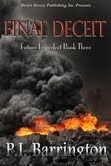 After a long detour through the entertainment industry, author P.I. Barrington has returned to her creative roots of fiction writing with a crime thriller series, a sci fi novella, a cozy mystery and several short stories under her publishing belt. She lives in Southern California and loves to hear from readers here.
After a long detour through the entertainment industry, author P.I. Barrington has returned to her creative roots of fiction writing with a crime thriller series, a sci fi novella, a cozy mystery and several short stories under her publishing belt. She lives in Southern California and loves to hear from readers here. Tell us about Final Deceit in a few sentences.
Final Deceit ends the Future Imperfect series which is a crime thriller/romantic suspense set in 2032 Las Vegas, Nevada that also has a sci fi current running through it. Desolation and desperation have hit Las Vegas, the ecology and economy is basically destroyed and the city officials are doing whatever they need to do just to keep Vegas functioning. Ex-DCI Gavin McAllister is hired as part of that dispensing with protocol and he is paired with Payce Halligan. They pursue a serial killer who may have ties to a quasi-religious cult as they try to deal with their torturous pasts and growing attraction to one another.
How did you come to write this particular book?
As I said, it is the final book in the Future Imperfect trilogy that ends the series.
If you have a favourite character in your novel, why that particular one?
I have several actually. My absolute favorite is Gavin McAllister. He's no superhero and he just gets into situations that are hard to explain but he also carries a lot of baggage around too. I've always loved the fact that he's British and completely out of his element in the desert. His love interest & partner Payce Halligan is a very sweet character.I've also come to love Nick Kincaid and Amy Strand. They're a secondary romantic line that just sort of developed in spite of me. They're both sarcastic smartasses no matter what happens. They're the comic relief in all the stressful situations.
Where and when is your novel set and why did you make these specific choices?
I didn't intend it to coincide with the awful housing nightmare that has plunged the economy in the USA and has hit Las Vegas especially hard but it all just kind of fell together. For a time, the new casinos being built along The Strip just halted construction in the middle and the iron framework beams and girders stood like skeletons abandoned in the desert heat. One of the main reasons I chose Vegas just a few decades from now was the fact that I wanted to play with the police rules and procedures yet make the story still have verisimilitude. Also, and I swear this is true, I thought "Area 51" was in New Mexico—I guess I got Roswell and A 51 confused. I set the abandoned military research center and The New Creation cult built over the top of it in the general location of the real Area 51 without realizing what I'd done, lol! Besides all that, I love Las Vegas! I've been there countless times (it's only a three-four hour drive from my house in CA) and that city just fascinates me. It's so oddly drab in the daytime and so wildly alive at night. The Strip at night literally pulsates to a beat, the lights, the cars, the people, the music all throbbing out a rhythm as it snakes through downtown. Such a complete and incredible dichotomy between the day and night!
How can people buy your books?
My books are available through my publisher Desert Breeze Publishing, Amazon.com, Kobo, barnesandnoble.com. Some of the links are here:http://www.amazon.com/Future-Imperfect-Book-One-ebook/dp/B002VWKEYC/ref=sr_1_1?ie=UTF8&qid=1290660684&sr=8-1
http://www.amazon.com/Future-Imperfect-Book-Two-ebook/dp/B003OQUNIG/ref=sr_1_1?ie=UTF8&m=AG56TWVU5XWC2&s=digital-text&qid=1290660724&sr=1-1
http://stores.desertbreezepublishing.com/-strse-44/%3Ci%3EFuture-Imperfect-Book-One-cln-%3C-fdsh-i%3E/Detail.bok
http://stores.desertbreezepublishing.com/-strse-94/PI-Barrington-Future-Imperfect/Detail.bok
http://www.amazon.com/Button-Hollow-Chronicles-Peeper-Murders/dp/0982589999/ref=sr_1_1?ie=UTF8&s=books&qid=1290661070&sr=8-1
What qualities make a successful writer?
Authors are going to hate me, but I personally think that you have to be your own harshest critic. Don't indulge yourself in thinking that your work can't be improved upon or that you've written the great American or British novel hands down. Don't allow yourself to think that you can't learn anything else because you can. There are things that writers blog about that I've never even thought of but that can make a tremendous difference in your writing quality. And please, please, please read different genre' as well as your own. You'll never grow as a writer if you don't expand your exposure. You may never ever write a horror story, but reading Stephen King will teach you a hell of a lot about internal dialogue of characters and how to create descriptions that cause nearly every reader to picture the same image. I write futuristic crime thrillers but my favorite genre' to read is ancient historical—non romance—Christian and non Christian. Another tip is to try to write every single day. There are women authors who have four or five children, work a day job, come home and make dinner and still crank out quality novels like machines! If they can manage it, so can all writers.
How do you set about writing a piece?
I always have the first and last lines of the novel before I start. Then, I just start at the beginning and go straight from there. I stop if I'm stuck or have errands or just have to sleep. Then I pick it up the next day where I left off and keep going again. In November hundreds, probably thousands of authors participate in NanoWriMo where they don't do anything for a month but write all day long or as long as they possibly can without breaks for making dinner, shopping, cleaning, whatever. I presume some British authors participate as well. But I cannot, I write daily anyway and I'm a "pantser" but not to the extent of NanoWriMo. It's mainly just an exercise for authors to actually finish a book. Published and non-published authors participate but I don't like the idea of having to report or have constant contact with another author to keep tabs on how much I'm writing. I work alone or with my sister when we co-author novels.
Beginning writers make many mistakes; what do you think is the most harmful?
I really can't pick just one. Disregarding grammar, unprofessional attitude, not learning your craft are the biggies but as I said not forcing yourself to finish the book or novel goes without saying. You can't pitch, sell, or publish a book that doesn't exist or that doesn't exist in a viable form.
To what extent are grammar and spelling important to a writer?
Well, aside from the fact that my editor recently told me I have a "deep seated fear of grammar", it is incredibly important especially when you are submitting a manuscript to a professional in publishing. Their first thought if they see bad grammar or spelling is "this person isn't taking this seriously enough to be professional and take the time to polish it" and that is a lot of the reason some writers get rejected. Really paying attention to grammar and spelling shows the editor or agent that you are intent on being successful and are willing to work hard for that success.
How much revision of your MS do you do before you send it off?
Okay, now it's going to sound like I am contradicting myself but editors have picked up my stuff without too much revision—until the editing rounds start after the novel is finished. I try to edit as I go and I'm one of those people who will stop and look up a word or its spelling or meaning in the middle of a sentence. I used to be a newspaper reporter and back in those old Pleistocene days I also had to do some proof reading and headline writing so I'm used to self-correcting. I still do try to be as correct grammatically as I can no matter what stage the manuscript is in (prepositional phrase ending).
To what extent do you think genre is useful in the publishing world?
I am just amazed since I've returned to writing at how genre' have crossed over each other and generated so many sub-genre' like Steampunk, dystopian sci fi, paranormal, fantasy, urban fantasy, time-travel, paranormal/fantasy/sci fi time travel, historical paranormal etc. It's just astounding. I sometimes have difficulty in categorizing my books because they're a blend of crime thriller/romantic suspense/sci fi. In fact one of the first stories I wrote that got published in paperback was actually "time-travel pulp fiction!" Back in my reading heyday categories weren't so specialized and fractured. Fantasy was fantasy, science fiction was sci fi and crime novels were crime regardless they had flavors of other genre'.
How do you know where to begin any given story?
Most of the time, before I start actually writing, I know the first and last line of the book, strange as that sounds. When I started the Future Imperfect series with Crucifying Angel I used three words with a period after each. That kicked off the story and allowed me to set it up without a lot of wordy exposition. They say to start in the middle of the action and that's true in my experience. And you don't have to start with a vehicle exploding either. The action has to be action but it doesn't have to be violent, just something pertinent happening. I almost always start with the main character performing some action, even if it's dialogue. As I said, I pretty much always know the first and last lines and that helps me construct the story from one point to the other. I do have a different way of handling timelines and sagging middles but just knowing those two lines gives me an easier idea of what needs to happen from point A to point B. Usually, it all starts with a picture, place, setting, object or mostly, action, one singular thing that inspires that first line and/or gives me the basis for the character's personality and experience as well as the plotline.
What sort of displacement activities keep you from actually writing?
Most of the time, it's taking my mom to the doctor or having major errands to take care of to keep the house and cars running. I do get terribly distracted by social media—Twitter to be exact—as well as email. Social media is the bane of the novelist, at least this novelist, in my opinion!
Do you have support, either from family and friends or a writing group?
My family supports me in everything. My sister is an author also and co-author of at least one book and so we bounce things off each other constantly. One thing that we do have which I am appreciative of is the fact that we are brutally honest with each other. If something is bad or cliché or doesn't make sense, believe me we tell each other. We've always worked that way, that's how we survived both in the entertainment industry and in publishing. We both worked in entertainment—she still does—and there wasn't time for niceties. We're both driven personalities and classic overachievers. When I first returned to writing, I joined Yahoo online writing groups and they were very helpful and supportive too. I still belong to the first one I ever joined and drop in every so often. Very many authors will find other author "critique partners/groups" online and in person and they say it helps enormously. I don't do that but then I'm rather hard on myself. I've been lucky with having my sister. As far as professional associations, I'm Sisters In Crime, Los Angeles chapter and Romance Writers of America. They are supportive but are very large organizations.
Is presentation of the MS as important as most agents and publishers suggest?
I'll tell you a secret. Most agents and editors don't have time to wade through a big impressive package. You need to be able to get your major information to them in as brief, tight, concise manner as humanly possible. Not only does that help them, but it also makes you better at selling your work effectively. They're going to be more kindly disposed toward a package that saves them time and shows you're professional enough not to waste time—yours or theirs. And it shows you're mature enough not to expect them to be impressed by some big, dramatic presentation that you think is different or cute.
How long does it normally take you to write a book?
Less time than I'd like, LOL! I've written the three books of Future Imperfect over one year, a book written and released every four or five months and then my sister and I co-wrote the cozy mystery in four days, no joke—I told you we're overachievers—and then I wrote a novella for my publisher in September for their Borealis sci fi anthology just released in October all in the space of about 14 months! It's just been crazy! I was hoping for some down time to work on my other projects but this book (Final Deceit) had more re-writes than the others.
Who or what inspires you? My sister, my mom, my nieces and nephews. They're all very loving and kind and self-sacrificing. I'd be dead without them.
If there's a single aspect to writing that really frustrates you, what is it?
Argh! Word count. I was a newspaper reporter so I tend to write very concise and tight and it can be a challenge trying to slow down and get a little more depth to the story with more scenes and more descriptive prose. That I think, for me at least, is the most frustrating part of fiction writing. Oh, and writing the damned synopsis.
Is there any aspect of writing that you really enjoy?
I love when I'm "in the moment" as actors say. Writing a novel is like watching a movie unfold in front of you and inside of you—you're seeing through the characters' eyes but also seeing them as well. I think a lot of writers will tell you that. I'm watching the scenes as they happen and as if they are being edited—cutting from one scene to the next and making sure they make sense when they do. And, I think, that's what you're trying to have your readers experience: that sense of watching the story happen. I've had several readers tell me they are still upset with one character's behavior (American spelling) which tells me I've done my job as an author. If I can make a character so alive that the reader gets angry at them, I've done what I was supposed to do. That is a very rewarding response from readers! I love to hear that.
Do you think writing is a natural gift or an acquired skill?
I think it's a bit of both. Almost all writers will tell you they read from a very early age and still do read voraciously. Just the reading itself teaches writers a lot about the skills—one absorbs it so to speak. And the more varied your reading, in terms of genre', styles and point of view, the more varied your ability to write well and vary your style and technique. Top that off with classes or courses and it can be the perfect storm of writing.
What single piece of advice would you give to writers still hoping to be published?
Finish the book. When I do panels, I always tell authors to finish the book because once you finish and type THE END, something changes inside your head. You've literally taught yourself how to write a book. You've dealt with the sagging middle, the characterization, the dialogue, and managed to get to the end. And, you can now polish and submit. People have all these platitudes about being a writer; that you're a writer the instant you pick up a pen, that if you write a private journal you're a writer, published or not but until you have something viable to submit for a professional to seriously look at, you're not a novelist. Otherwise, call your writing a hobby. People are going to get pissed at my saying that but I'm sorry. If you want to be taken seriously you have to be professional and that means having enough discipline to finish a book, take a good hard look at what you've written and if it's not top notch, make it that way.
What are you writing now?
I'm very superstitious about talking about things before they happen. I will say that I have a fantasy underway that may turn epic or at least into a trilogy I hope and a quirky dystopian science fiction, and then I have a militaristic sci fi romance I'm doodling with right now. I love militaristic settings and I know other women do too. Maybe it's because we have a fantasy about having both power and men in uniform at the same time, LOL! I'm a sucker for a man in a uniform…
Do you have a website or a blog that readers can visit?
Yes! My sister and I have one: http://thewordmistresses.com It has info on our books, reviews, where to buy, photos and occasionally we'll review music if we have time. Everyone is welcome to email us directly.
Given unlimited resources, what would be your ideal writing environment?
I would love to have two offices—one at home and one in an office building. One at home so that I can work deep into the night and one in a downtown building to keep me in professional mode during the day.
Where do you actually write?
About six months ago I bought myself a new huge desk and stuck it where my old monstrosity sat in the corner of my living room (we have a big house) and my old computer died around the same time so I also bought a new one and managed to save about ¾ of my old work. I'm able to concentrate on writing full time and that's why I can produce so many books in a fairly short amount of time. It can get distracting with the television in the room, but if I'm really into the story I can manage fairly well. If I really need to I can toss my family into the other wing of the house but I try not to do that. Some writers have to have music on and atmosphere lighting, etc, but I don't. I'm one of those writers that when the urge comes to write, I'll get those words out if I have to write on my own skin, in the restroom of a store! I'm just happy if I have a place with a lot of sunlight, a couple of trees and good lighting at night. Oh, and I don't have a laptop so I still write in longhand about a third of the time. (And yes, I write in my pajamas 70% of the time lol!)

Published on January 02, 2011 16:00
Banned Books
[image error]
Image via WikipediaI just came across a website dealing with books that have been banned. Unbelievably there are places in so-called civilised countries (like the USA, the home of free speech) where books are regularly banned even today. What are these people afraid of, I wonder? Is it the truth, by any chance? Some of the banned books are literary classics, others are just straightforward stories or factual volumes. Since none of the books I've so far seen identified are either pornographic or full of gratuitous violence, I can only assume that the banners are terrified of the opinions of others whose views do no correspond with their own. Such fear is clearly born of doubt, since anyone who is confident in their beliefs, whatever they are, has no reason to fear exposure to other ideas. To be so wrong and to be so certain you are right must be the worst form of blindness, don't you think?
So, what do you think about this one? I'd welcome your views.
It's now an ambition of mine to write and publish a book which someone will ban.


So, what do you think about this one? I'd welcome your views.
It's now an ambition of mine to write and publish a book which someone will ban.

Published on January 02, 2011 14:31
January 1, 2011
The Science Fiction Anthology is Complete
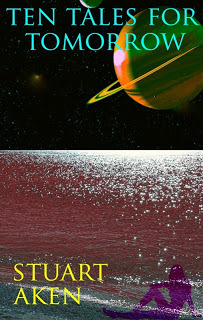 Ten Tales for Tomorrow, a collection of ten of my science fiction and speculative fiction shorts, is now uploaded to Smashwords. It takes about a week for them to approve a new text and place it into their Premium Catalogue. It is, however, available to buy right now, should you want to do that. I've priced it at $0.99 (they only do dollar prices, but this converts to about £0.63 for UK readers).
Ten Tales for Tomorrow, a collection of ten of my science fiction and speculative fiction shorts, is now uploaded to Smashwords. It takes about a week for them to approve a new text and place it into their Premium Catalogue. It is, however, available to buy right now, should you want to do that. I've priced it at $0.99 (they only do dollar prices, but this converts to about £0.63 for UK readers).If you want to read the stories but don't have an eReader, you can read it on your PC or Mac by choosing the PDF format. If you don't have a PDF reader on your home computer, you can download the Adobe Reader free from here.

Published on January 01, 2011 20:18
Breaking Faith Published for Kindle.
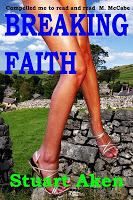 My first novel, Breaking Faith, is now available as an eBook for Kindle and can be purchased direct from Amazon UK here for £2.23, or from the USA Amazon here for $2.99.
My first novel, Breaking Faith, is now available as an eBook for Kindle and can be purchased direct from Amazon UK here for £2.23, or from the USA Amazon here for $2.99.If you use the picture link or the search boxes to the right, however, it will cost you no more but I will get a small amount from Amazon, which will help support this blog.
If you would like to read this as an eBook but don't have a Kindle, you can download free software to allow you to read it on your PC or Mac here.

Published on January 01, 2011 13:09
December 30, 2010
How Should A Story Begin?
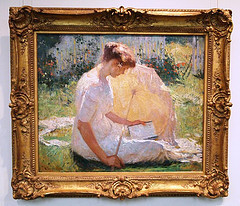 Image by pobrecito33 via Flickr
Image by pobrecito33 via FlickrAs a reader, do you like your stories to begin with a bang, or do you prefer a slow build-up, perhaps a question to be answered, some mystery introduced? As a writer, do you hook readers or do you tempt them, tease them with small tit-bits of information, make them so involved with your characters that they feel compelled to continue to read?
It's generally considered, by those who are supposed to know such things, that the best way to persuade a reader to travel through the first paragraph and beyond is to engage their interest. And, logically, that makes sense, of course. But it's the how of this that interests me. It comes down, I imagine, to the type of book you're reading or writing. The action book needs to grab the reader at once, posing some threat or challenge that must be faced and resolved by the hero. The love story requires that the reader cares about the heroine and is quickly engaged by her potential lover. The literary story can begin more slowly, more deliberately, with fascinating language and images presented in words well chosen. The crime novel employs the body in the library, or the detective about to embark on a new mystery.
So, this is a matter of horses for courses. I write in many genres and always try to engage the reader with the main character(s) as early as possible. I want readers to care what happens to the people in my stories. If I can introduce an air of menace, intrigue, mystery or simple desire, to fit the story, then I feel I've gone a long way to keeping the reader interested. Some writers, especially when they begin the craft, try to tell the reader too much in one go and drown the reader in facts, forgetting that they can be shown these things as the story unfolds.
So, I ask you; what do you prefer to read as an introduction to a new story? What's your approach as a writer to the beginning of a new tale? Please comment and let others know whether your response is as reader or writer.
Thank you.

Published on December 30, 2010 16:00
December 29, 2010
A Blog For and About Women
Just came across this site via LinkedIn and thought all my female (and some of the more enlightened male) readers might like to have a look at this. It deals with feminine issues in a caring way.
Published on December 29, 2010 11:16
December 28, 2010
Kindle - The Process of Publishing Your eBook.
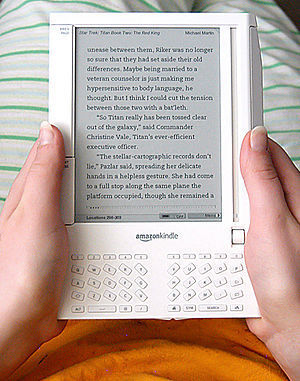 Image via WikipediaHave you tried to publish your work as an eBook on Amazon's Kindle? I published my print novel, Breaking Faith, as an eBook on Smashwords a short while ago and reproduced an article about Brian S. Pratt, a very successful Smashwords author, on this blog. But I was informed by a Kindle owner that using Smashwords for that platform is not so simple as it is direct through the Kindle Store, where it is a one click operation.
Image via WikipediaHave you tried to publish your work as an eBook on Amazon's Kindle? I published my print novel, Breaking Faith, as an eBook on Smashwords a short while ago and reproduced an article about Brian S. Pratt, a very successful Smashwords author, on this blog. But I was informed by a Kindle owner that using Smashwords for that platform is not so simple as it is direct through the Kindle Store, where it is a one click operation.I decided to try to place the novel as a Kindle eBook so that potential readers have that option. The first step is to join Amazon's Digital Text Platform ,which gives all the details of how you go about this slightly convoluted process. I'd advise that you first download Kindle for PC , which will allow you to read Kindle books on your PC. Many of these are free, including the instruction book - Publish on Amazon Kindle Using the Digital Text Platform - which details the process in fairly straightforward language.
The instructions need to be followed closely, or the eBook will look poor on the Kindle and you will appear as an amateur (something I risk as I write this, since it takes 48 hours for Amazon to 'approve' your submission, and you can't sample the result until after this).
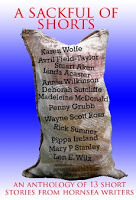 I had already simplified the text of my novel and compiled an anthology of short stories, A Sackful of Shorts, for my writing group, Hornsea Writers, to place them onto the Smashwords site and I advise you to do the same. The fewer bells and whistles you have on the document, the better will be the result on the eReader.
I had already simplified the text of my novel and compiled an anthology of short stories, A Sackful of Shorts, for my writing group, Hornsea Writers, to place them onto the Smashwords site and I advise you to do the same. The fewer bells and whistles you have on the document, the better will be the result on the eReader.Ideally, you need to convert your Word doc into an HTML doc (in Word 2007, this means going to the 'Save as' area and selecting 'Web' from the drop down list). Basically, I copied and pasted my single Word doc into Windows Notepad to strip it of all formatting, and then pasted it from there into Word as a 97-2003 compatible document. I replaced the first line indents using the 'paragraph' tab, formatted the whole text as 12 point Times New Roman, and replaced the curly quotes with straight ones.
You'll also need a cover picture, which can be uploaded as either a TIFF or JPG file - they recommend a size of 600x800 pixels for this. You'll need a blurb of up to 4,000 characters as your sales pitch and you'll need to choose the genre you want it to appear in - they give you up to five options.
Pricing is more or less up to you, as the author, but I advise you to read the agreements thoroughly to work out which you feel will best serve you. Many authors make their first eBook free in an attempt to garner more readers in readiness for their subsequent books. And this has worked well for some.
Finally, if you run a website or a blog, I'd suggest you open an Amazon Associate account which will allow you place various widgets on your site - see the sidebar right and the advert at the foot of the blog. This allows readers of the blog to search and buy from your site. It costs the customer no more than if they visited Amazon directly but it earns you a few pennies or cents and helps keep the blog/website viable.
So, hopefully, I've given you an introduction to this area of enterprise and enough information to help you make a start as a writer. If you're a reader, hopefully I've supplied you with an insight into the why and how of independent author eBook publishing, which might persuade you to look for such books in the future.

Published on December 28, 2010 19:55



